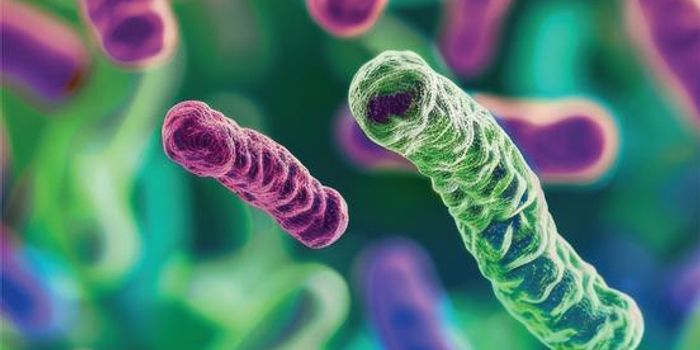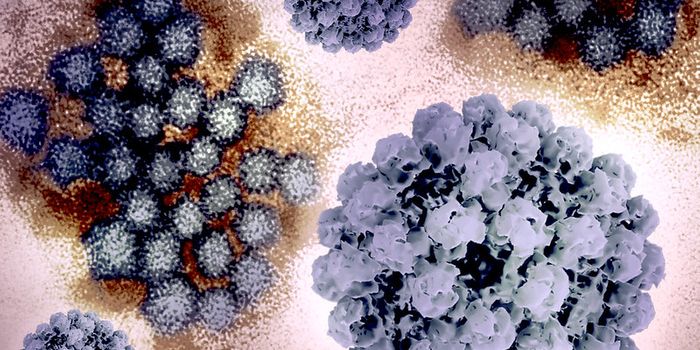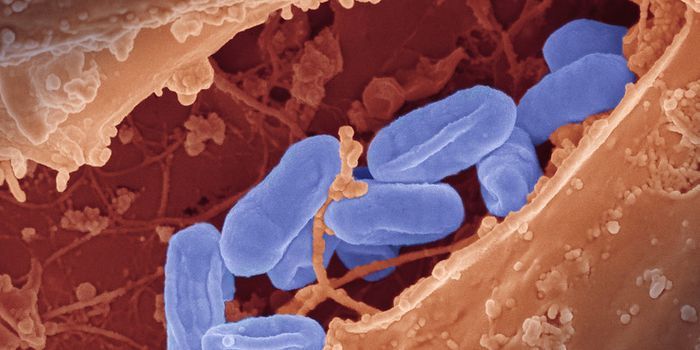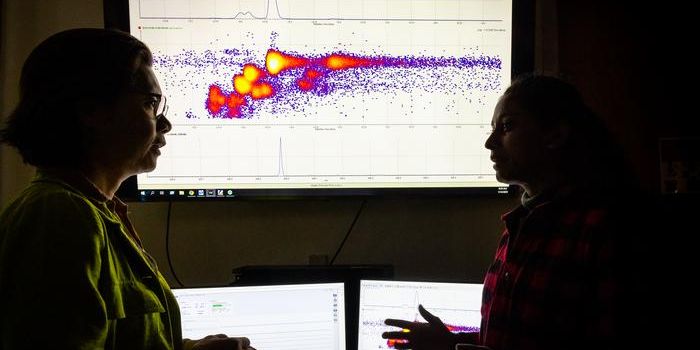Gut Microbes Produce Bile Acids That Fight Cancer
There are trillions of microbes in the gastrointestinal tract, and we are starting to learn more about the exact mechanisms that link those microbes and the substances they generate to changes in human health. The gut microbiome seems to have an extensive and sometimes powerful influence on human biology. In recent years, scientists have begun to reveal the complex interactions between gut microbes and bile acids; microbes can affect the composition of bile acids, while bile acids can influence the structure of the gut microbiome, for example.
Now scientists have shown that bacteria in the gut microbiome can alter bile acids that are made from cholesterol; the microbes can transform these bile acids into metabolites that help the immune system fight cancer, by disrupting hormone signaling. The findings have been reported in Cell.
“I was very surprised by our findings. As far as I know, no one has previously discovered molecules like these bile acids that can interact with the androgen receptor in this way,” said co-senior study author Dr. Chun-Jun Guo, an associate professor at Weill Cornell Medicine, among other appointments.
The liver produces primary bile acids, which are then released into the gut where they are modified by gut microbes. In this work, the researchers wanted to learn more about these modifications. They found over fifty bile acids that were altered by microbes, many of which have not been revealed before this, Guo noted.
There is a steroid chemical structure in bile acids that is also found in sex hormones like estrogen. So the investigators also wanted to know whether modified bile acids might be interacting with receptors for those hormones. “It seemed like a wild idea at the time,” Guo said.
The study showed that this is the case. Of 56 altered bile acids that were discovered in this study, the researchers revealed that one can stimulate the androgen receptor. This led them to test another 44 modified bile acids that have previously been identified, and the effort found three other bile acids that can work in this way.
The androgen receptor is present on some immune cells, like CD8 T cells. Blocking the activity of CD8 is known to promote anti-tumor activity.
When the researchers exposed a mouse model of bladder cancer to these bile acids, there was a strong response against the tumor. The modified bile acids had triggered T cell activity, and possibly enhanced their survival ability in tumors, helping them to destroy cancer, the researchers suggested.
While many more questions remain, such as what other affects these modified bile acids may have on androgen receptors that are pesent on other cells, the work could open up novel approaches for treating cancer.
Sources: Weill Cornell Medicine, Cell









